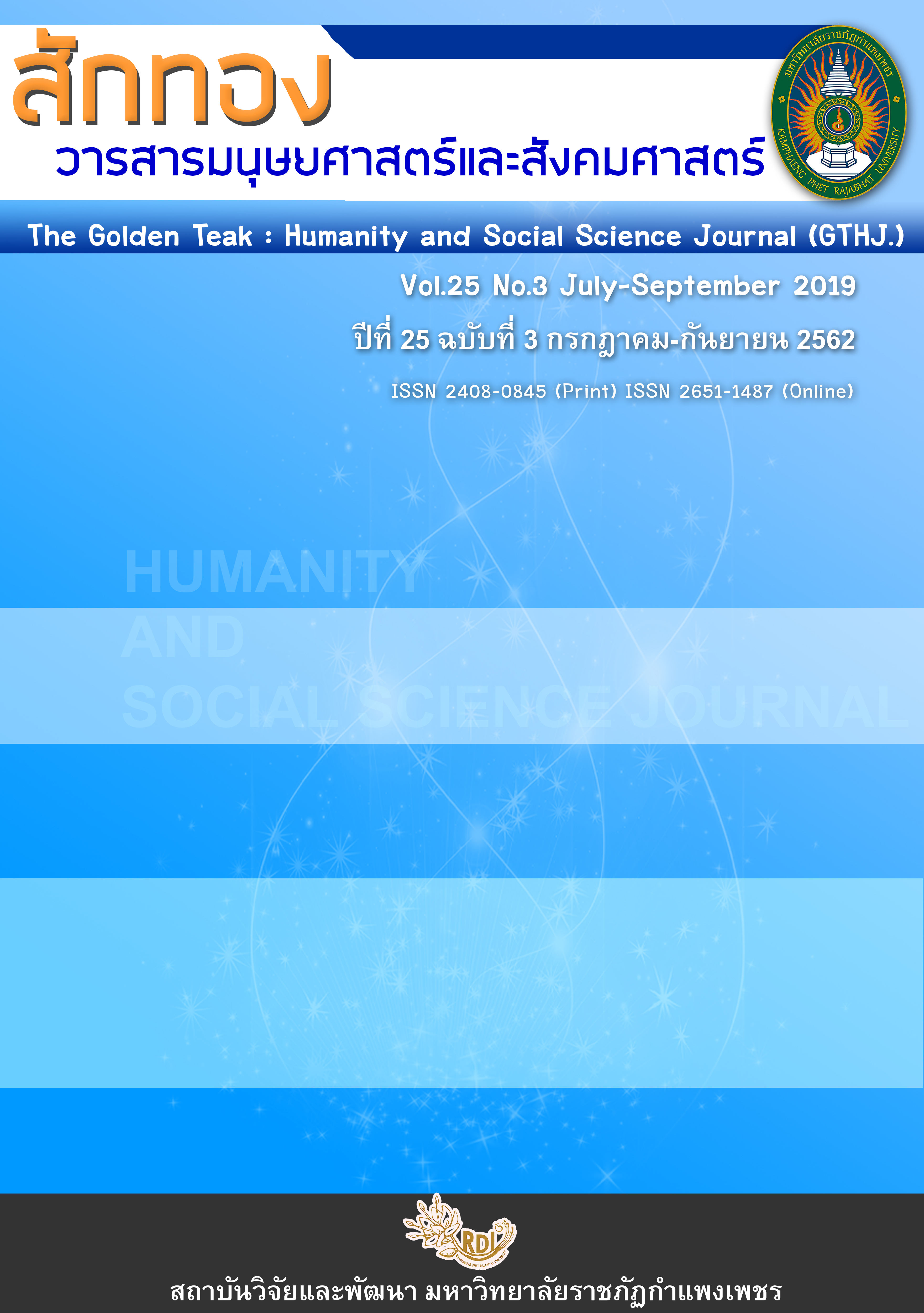The Effectiveness of Reference Service Training Program Customized for the Staff of Japanese Public Libraries Operated by a Private Company
Main Article Content
Abstract
This research aimed at studying the effectiveness of the of reference service training program customized for the Japanese public libraries operated by a private company in the year 2016/2017. The qualitative method was used. The population consisted of nine trainees and nine mangers who acted as supervisors from public libraries operated by a private company in Japan. Data were collected using documentary form, pre-test, interview form for trainees and interview form for supervisors. Qualitative data were analyzed using content analysis and presented descriptively. Research findings showed that the trainees and the supervisors agreed that the training program was effective especially in terms of contents, methods and management. The training program was meaningful and there has been the improvement and changes of the trainees’ attitude and behavior towards their works. Important strategies used included the design of the training program in terms of management, contents, and methods that suit the background and needs of the trainers and the supervisors, and the systematic organization of the training program which put the importance of the active participation of involved stakeholders. Recommendations were to use additional technologies and online training to reduce the limitations of time and working condition of the trainees and effective stakeholder communication.
Article Details
บทความที่ได้รับการตีพิมพ์เป็นลิขสิทธิ์ของวารสาร สักทอง : วารสารมนุษยศาสตร์และสังคมศาสตร์ สถาบันวิจัยและพัฒนา มหาวิทยาลับราชภัฏกำแพงเพชร
ข้อคิดเห็นใดๆ ที่ปรากฎในวารสารเป็นวรรณกรรมของผู้เขียนโดยเฉพาะ ซึ่งมหาวิทยาลัยราชภัฏกำแพงเพชรและบรรณาธิการไม่จำเป็นต้องเห็นด้วย
References
of Nippon Association for Librarianship), 70(1), 157-167. (in Japanese)
Kuwabara, Y. (2018). Recent trends in the adoption of designated administrator system in public libraries in Japan. Bulletin of Shokei University (Humanities and Social Sciences), (50), 31-44. (in Japanese).
Oda, M. (2009). Professional development and training for librarians in e-learning environment. The Library Science (The Journal of West-Japan Academy for Library Science), (94), 28-30. (in Japanese)
_______. (2013). Practices using the interface for training activities of the collaborative reference database system. Current Libraries, 51(1), 27-34. (in Japanese)
_______. (2013). Product-sharing network system using the empirical study on the efficiency of reference training program. Library World (The Journal of Nippon Association for Librarianship), 64(5), 310-326. (in Japanese)
Oda, M. (2013). A study on the characteristics and acceptance of 'Visiting Instructor Training Program': A result of questionnaire survey. The Library Science (The Journal of West-Japan Academy for Library Science), (101), 44-66. (in Japanese)
Tanimoto, T. (2015). A study on the data registration personnel’ consciousness and attitude: Case of member libraries in the collaborative reference project database. Library World (The Journal of Nippon Association for Librarianship), 67(3), 166-181. (in Japanese)
Yoshida, A. (2015). The utilization and evaluation of the reference examples. Journal of Bunka Gakuen University, 23, 21-33. (in Japanese)


